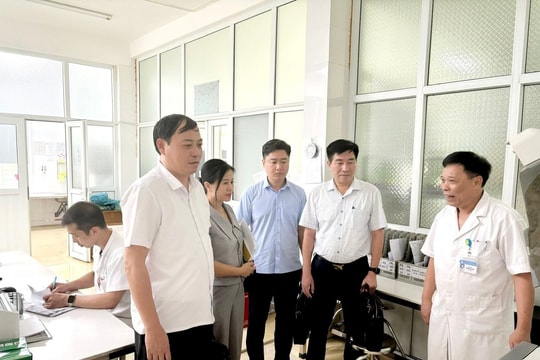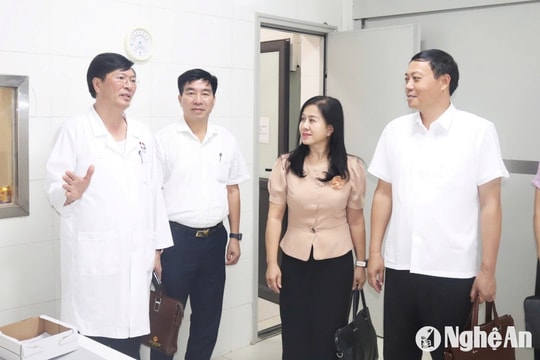Concerns surrounding the proposal to increase medical allowances
The Ministry of Health proposes to increase surgery and procedure allowances, on-duty pay, and meal allowances for medical staff in accordance with the current inflation index and consumer prices.
Change the level of treatment
At this time, the Ministry of Health is developing a preferential allowance regime according to the profession, proposing to replace Decree No. 56/2011/ND-CP dated July 4, 2011; building amendments and supplements to Decision No. 73/2011/QD-TTg on the regulation of a number of special allowance regimes for civil servants, public employees, and workers in establishments.medicalpublic and anti-epidemic allowance regime.
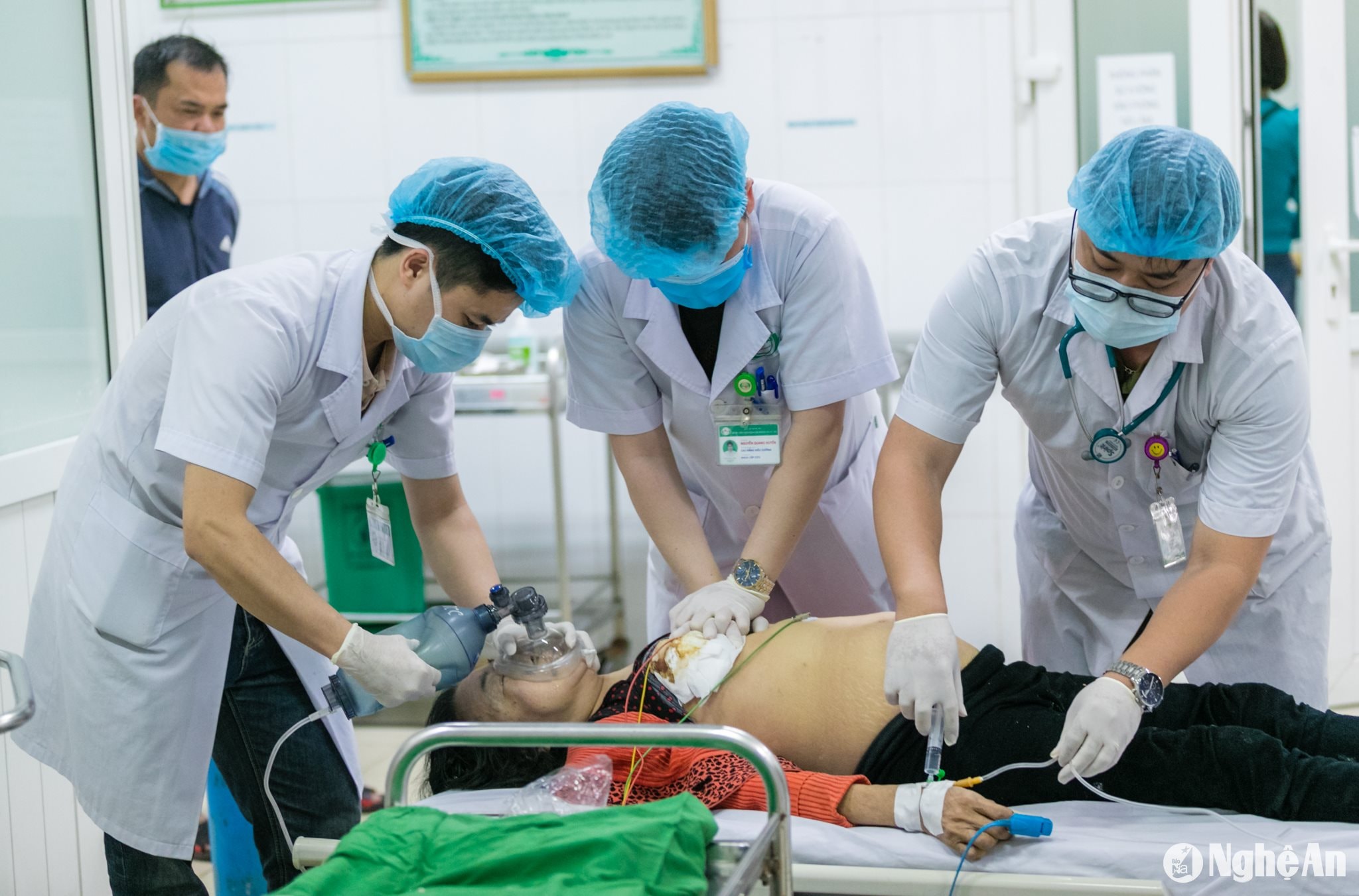
Specifically, the Ministry of Health proposes: Increasing surgery and procedure allowances; increasing on-call and meal allowances for medical staff in accordance with the current inflation index and consumer prices; applying regulations on working hours, overtime and overtime payment for 24/24 duty hours of civil servants and employees according to the Labor Code; applying special allowances for labor contract subjects whose salaries have been classified according to Decree No. 204/2004/ND-CP dated December 14, 2004 (including security guards, drivers, nurses, and professional contracts during the time waiting for civil servant recruitment exams).
Currently, the on-call allowance for doctors and medical staff is being implemented according to Clause 3, Article 2 of Decision 73/2011/QD-TTg. Accordingly, employees on duty 24/24 hours are entitled to an allowance of 115,000 VND/person/on-call for grade 1 and special hospitals; 90,000 VND/person/on-call for grade 2 hospitals; 65,000 VND/person/on-call for other hospitals and other equivalent facilities; 25,000 VND/person/on-call for commune health stations, military-civilian health stations, and military-civilian infirmaries.
Workers on duty for 12/24 hours are entitled to a rate equal to 0.5 times the 24/24 hour on-call allowance. Workers on duty for 16/24 hours are entitled to a rate equal to 0.75 times the 24/24 hour on-call allowance... If on duty in the emergency resuscitation area or special care area, the on-call allowance is calculated at 1.5 times the above prescribed rate; if on duty on a weekly day off, the on-call allowance is calculated at 1.3 times the above prescribed rate; if on duty on holidays and Tet, the on-call allowance is calculated at 1.8 times the above prescribed rate.
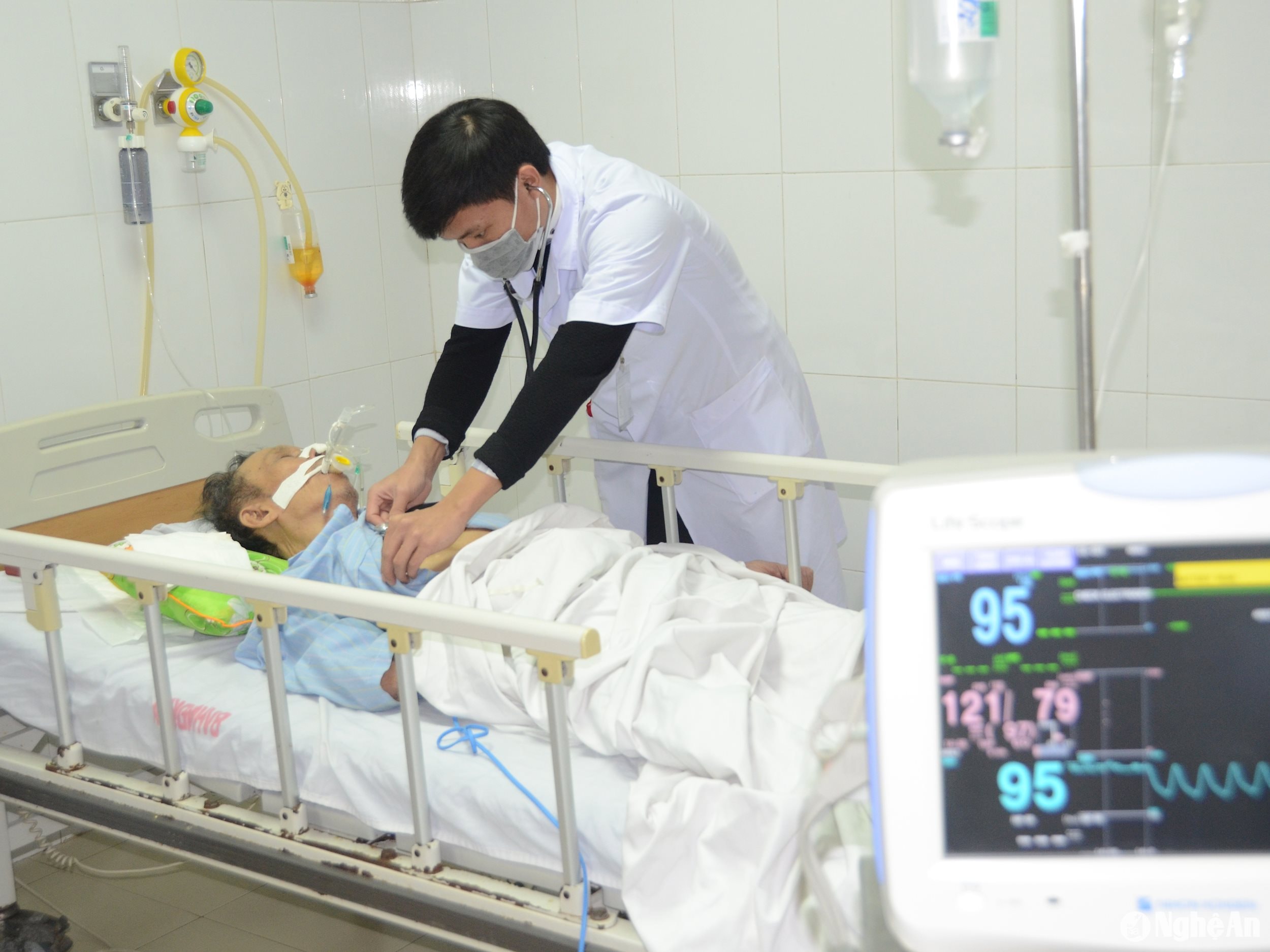
In addition, doctors and staffmedicalAlso enjoy the following regime: Workers on duty 24/24 hours are supported with a meal allowance of 15,000 VND/person/shift. Workers on duty 24/24 hours on weekdays and weekly holidays are given 1 day off in compensation; on holidays and Tet holidays are given 2 days off in compensation; workers on duty 12/24 hours or 16/24 hours are given at least the next 12 hours off.
In case a medical examination and treatment facility mobilizes employees to work during the above break time, it must pay overtime wages according to the provisions of the law on labor. In case a medical examination and treatment facility mobilizes employees to work overtime, it must pay overtime wages to the employees according to the provisions of the law on labor. Employees working on the night shift are paid wages for working at night according to the provisions of the law on labor.
“Although the training time for medical and medical staff is longer than other professions, not to mention the time for specialized training, subsequent practice, and continuous learning, the salary and benefits are not much. In addition, the current salary and allowance regime for medical staff is not suitable for the current market mechanism. The salary regime for medical staff is very low and was established many years ago, and is no longer suitable.”
Minister of Health Dao Hong Lan
Decision No. 73/2011 stipulates the allowance level (VND/person/surgery) for subjects participating in surgery:
| Object | Special type | Type I | Type II | Type III |
| Chief surgeon, anesthesiologist or chief local anesthetist | 280,000 | 125,000 | 65,000 | 50,000 |
| Surgical assistant, anesthesia assistant or acupuncture assistant | 200,000 | 90,000 | 50,000 | 30,000 |
| Surgical assistant | 120,000 | 70,000 | 30,000 | 15,000 |
Still many concerns

Although the Ministry of Health has not yet clearly stated how much the increase will be, the above proposed information has made many medical staff and employees excited, especially those at district-level medical centers (managed and budgeted by the District People's Committee).
Mr. Pham Ngoc Luan - Director of Thanh Chuong District Medical Center stated his opinion: In early 2012, when Decision 73/2011 took effect, the basic salary was 830,000 VND/month. Over the past 12 years, the basic salary has been adjusted 8 times, currently at 2,340,000 VND/month, but the above allowances for surgery, procedures; on-duty pay; and meals have not been adjusted accordingly. The Ministry of Health's proposal to increase the preferential allowances according to the profession is very correct and appropriate. This proposed increase should also increase according to the increase in the basic salary, up to about 3 times compared to the old level.
However, for many medical examination and treatment units (especially financially autonomous units of groups 3, 2, 1), the attitude of receiving this information is "neither sad nor happy". In Nghe An today, there are 46 medical career units, of which 1 is financially autonomous unit of group 1; 18 are financially autonomous units of group 2; 18 are financially autonomous units of group 3 and 9 units are guaranteed regular expenditure by the State.
It is known that the implementation of financial autonomy at medical units in the province is facing many difficulties. From July 1, 2024, the basic salary will be increased from 1.8 million VND/month to 2,340,000 VND/month. However, at this time, up to 7 financially autonomous units at the district level have not been able to pay the new salary to medical staff.
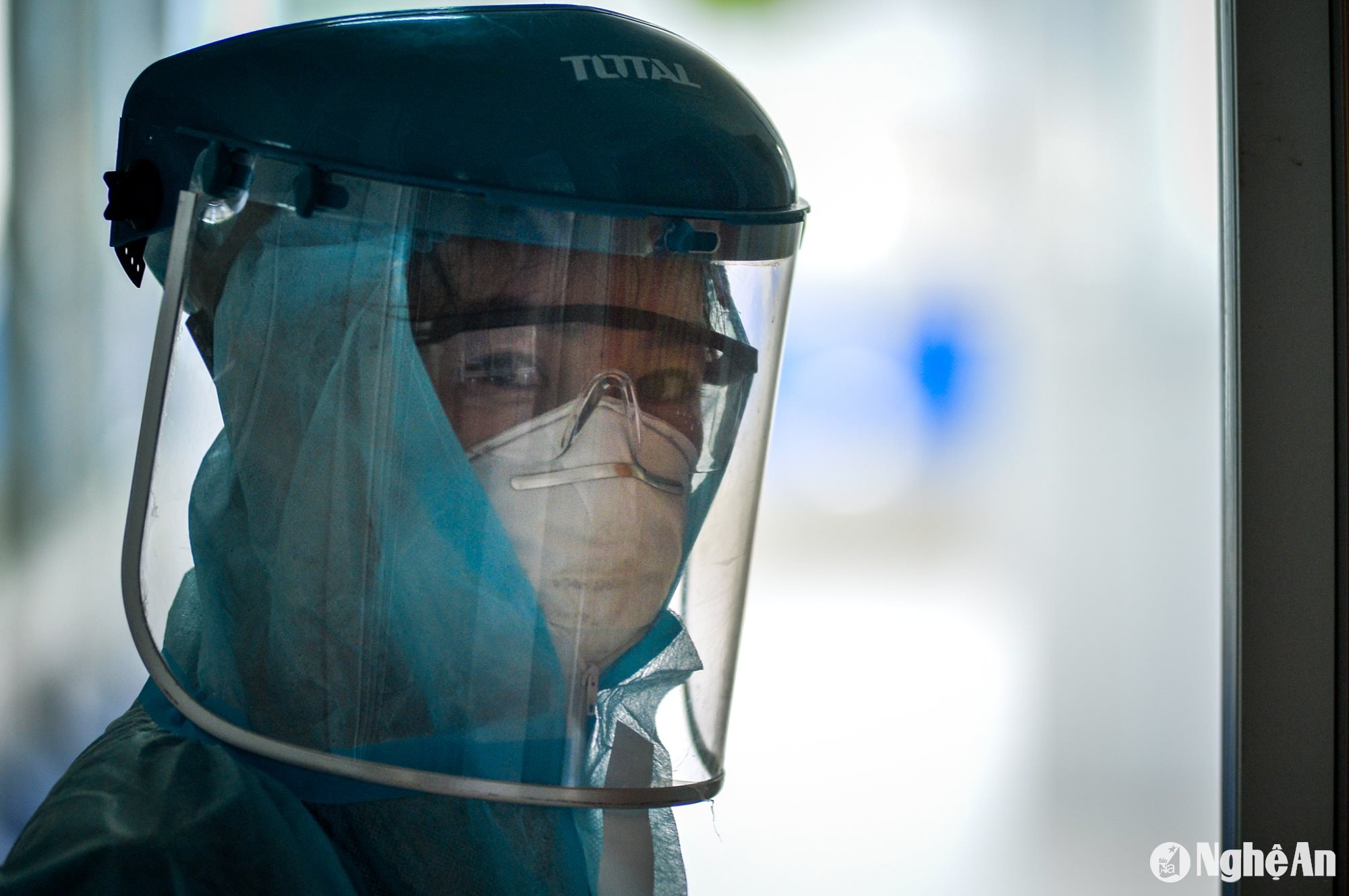
Mr. Tang Viet Ha - Director of the Northwest Regional General Hospital stated his opinion: Increasing preferential treatment and benefits is inevitable and very good for medical staff. However, I also think that after increasing the allowance, the price of medical examination and treatment services must also increase; it is necessary to structure this increase into the price of medical examination and treatment services. Otherwise, increasing is the same as not increasing.
In self-financed units with regular expenditures, if the price of medical examination and treatment services is not increased, the increase in allowances will not change the total income of employees. The reason is that the hospital's revenue is entirely dependent on hospital fees. When the price of medical examination and treatment services has not changed, and the constituent elements have not been calculated correctly and fully, the total revenue remains unchanged. Thus, the salary increase and preferential treatment of medical staff and employees means that the additional income must be reduced.
Currently, the price of medical examination and treatment services is being implemented according to Circular No. 21/2023/TT-BYT and Circular No. 22/2023/TT-BYT dated November 17, 2023, in which the price includes 2 factors: Direct costs (electricity, water, maintenance, repair of houses, equipment...) and labor (salary according to the basic salary); not including management costs and depreciation of fixed assets. Meanwhile, management costs and depreciation of fixed assets are also regular expenses to maintain normal operations of medical facilities.
Not including all cost factors in the price affects the revenue of hospitals. Specifically, not including depreciation costs in the price leads to medical facilities not having a career development fund to reinvest, purchase additional equipment, and develop techniques; not including management costs in the price leads to medical facilities not having resources to spend on activities to innovate management methods, invest in information technology applications, and train to improve skills. Thus, this also directly affects the rights of patients... Increasing preferential treatment and benefits for medical staff is very necessary. However, calculating the correct and full price of medical examination and treatment services needs to be done soon.
Mr. Nguyen Hong Truong - Director of Vinh City General Hospital


